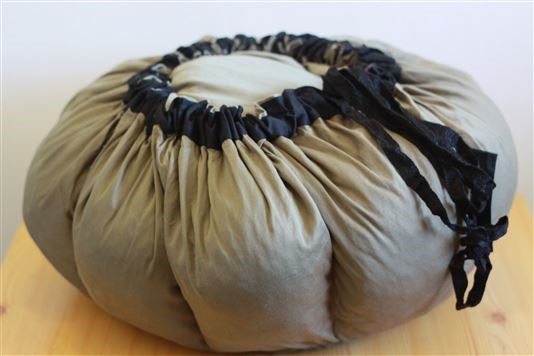
The Wonderbag is a slow-cooking device that could change lives. We test it out and find out about the impact it’s having worldwide.
Wonderbags are based on a simple but efficient concept. They’re well-insulated bags that you can place a hot pot into, leave, and come back hours later to find a hot meal ready and waiting for you.
Not convinced? It not only offers a slow-cooked meal that saves 30% of the energy an oven would require, saving you money, and a reduction in CO2 emissions, but a tied-in charitable scheme that gives Wonderbags to people in South Africa who benefit from it the most.
The one-for-one benefits
Moreover, this deforestation leads to the need to forage further away from the home. This is often done by women and girls, who are taken out of school to help feed the family. By Wonderbag’s estimate, women spend as much as four to six hours per day cooking, and the resulting lack of education means there is no way out of the cycle of poverty for girls brought up in these conditions.
Though this programme currently only gives to South Africans, UK Managing Director Jac Squire says that they’d like to see it expand. The bags have been available in the UK since 2012, and they’re sold online via the Wonderbag webshop. Jac says that around 7,500 have been sold in the UK over the two years it has been available.
Talking me through how the bags work before I got my hands on one, she explains that “it works like a non-electric slow cooker. It has also been compared to the simmering oven on an Aga – it cooks very gently. The principle is cooking through heat retention, and the instructions are very simple.”
“It can also be a cooler bag – when I go to events, the Wonderbag becomes my fridge," she says. "I’ll put some cooler blocks and ice in it and keep my chicken, bacon, milk – even wine – in it, and it stays cold enough to keep everything chilled.”
She has also had success at Christmas cooking with the bag, to slow cook a ham, which saves oven and fridge space, and there's no reason why a Christmas pudding can't be given the same treatment. The best thing about cooking with the Wonderbag is the convenience: “You eat when you’re ready, instead of when the food is ready.”
But does it work?
Wonderbag lent me a bag so that I could give it a go for myself. You do have to cook your food thoroughly on the stove prior to placing it in the bag, to make sure meat is cooked through and that starches in foods like potatoes break down properly. The bag comes with a recipe book and, at Jac's suggestion, I opted for the creamy leek and chicken stew included in that.
I prepped all the food on a Saturday, while I was already in the kitchen making lunch around midday. It took about 30 minutes in all to get everything ready and cooked up to put into the bag. I sealed it up and went out for the day. At around six, I returned home and opened up the bag to find that my pan was still piping hot. A good sign!
The chicken meat fell right off the bone – it received a good five or so hours of slow cooking without the need for me to leave my oven on all day, or use a slow cooker. The flavourful sauce seeped right into the leeks and potatoes, and was utterly delicious.
The one downside is that the sauce can’t reduce in this closed container, so it’s still rather watery. However, picking out the chunks of meat and veg and then pouring a little sauce from the pot over the top to serve is a fine solution.
The most basic Wonderbag costs £30. Some slow-cookers are almost that cheap, if not a little bit less, but the bag doesn’t require any power, so you’re saving on the electric bill and helping a good cause. They are a little bulky, but I'd say definitely worth investing in.
You might also like:
New 'clearaplate' campaign highlights our food waste